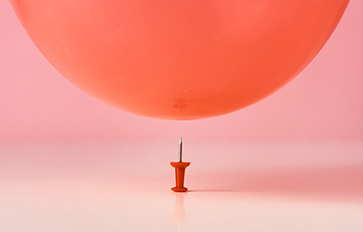Last Updated on April 3, 2025
“We’re way out of line as a society. More than half the population feels overwhelmed by stress. We need to take this seriously as a medical disorder.”
We all know stress is bad, but it may be worse than ever. According to the American Psychological Association, stress is causing a national mental health crisis that could yield serious health and social consequences for years to come. Renowned psychologist Elissa Epel is an expert on stress. Her book, The Stress Prescription: Seven Days to More Joy and Ease, is designed to increase understanding of the severity of the issue.
“We don’t take our mental health seriously until it gets to the point where problems are far more difficult to mitigate,” she said. “We have annual checkups for our physical health, why not mental health checkups, too?”
Epel argues that at no time in human history has stress been as pervasive as it is today. “Thanks to the media we have front-row seats in witnessing traumas all over the world,” she said. “We’re more isolated and alone. We feel we’re not good enough and this toxicity creates a state of chronic stress.”
Yet Epel is optimistic and believes there are ways to mitigate its effects. “First, we simply need to acknowledge it,” she said. “It reduces the stigma, making it less of a forbidden topic. Next, we need role models and social influencers like Growing Bolder that keep the topic in the forefront and change our negative mindset. These things help us have an adaptive stress response in the form of a big rush of adrenalin and a quick recovery.”
She likens the approach to choosing whether you approach stressors in your life by deciding whether you look at things from the point of view of the lion or its prey. Both feel stress, but the lion is intentional, confident, and forward thinking. Its prey senses catastrophe causing a high cortisol, vasoconstrictive response, which is difficult to recover from.
“This is where exercise and activity are a tremendous help,” said Epel. “We can take a brisk walk, do pushups, or best of all, high-intensity interval training. Exercise helps tone up the nervous system and metabolizes the stress response so that we process and recover from it.”
But these are ways of dealing with the symptoms. Epel says it is more effective to handle stress before the body reacts to it and causes chronic anxiety and depression. “New strategies, surprising ones, are now coming to the forefront,” she said. “Gratitude is a big one. Kindness to others makes a difference and so does self-compassion. These create a sense of strength and wellness that is incongruent with stress, and the body has a hard time feeling both, so whichever is stronger wins out. It is a whole new strategy that is showing a great deal of promise.”
Surprisingly, this is an area where age offers an advantage. “The data shows that with age we become more resilient; we have lower stress and lower depression. Surveys show that 60% of women in this country feel overwhelming stress while only 9% of women over 65 do. Aging helps us let go of small distractions to prioritize things like helping others, making a difference and being with people. It’s a truly beautiful benefit to aging, and one that younger age groups could really learn from.”
This article is featured in the Spring 2023 issue of The Growing Bolder Digital Digest.















